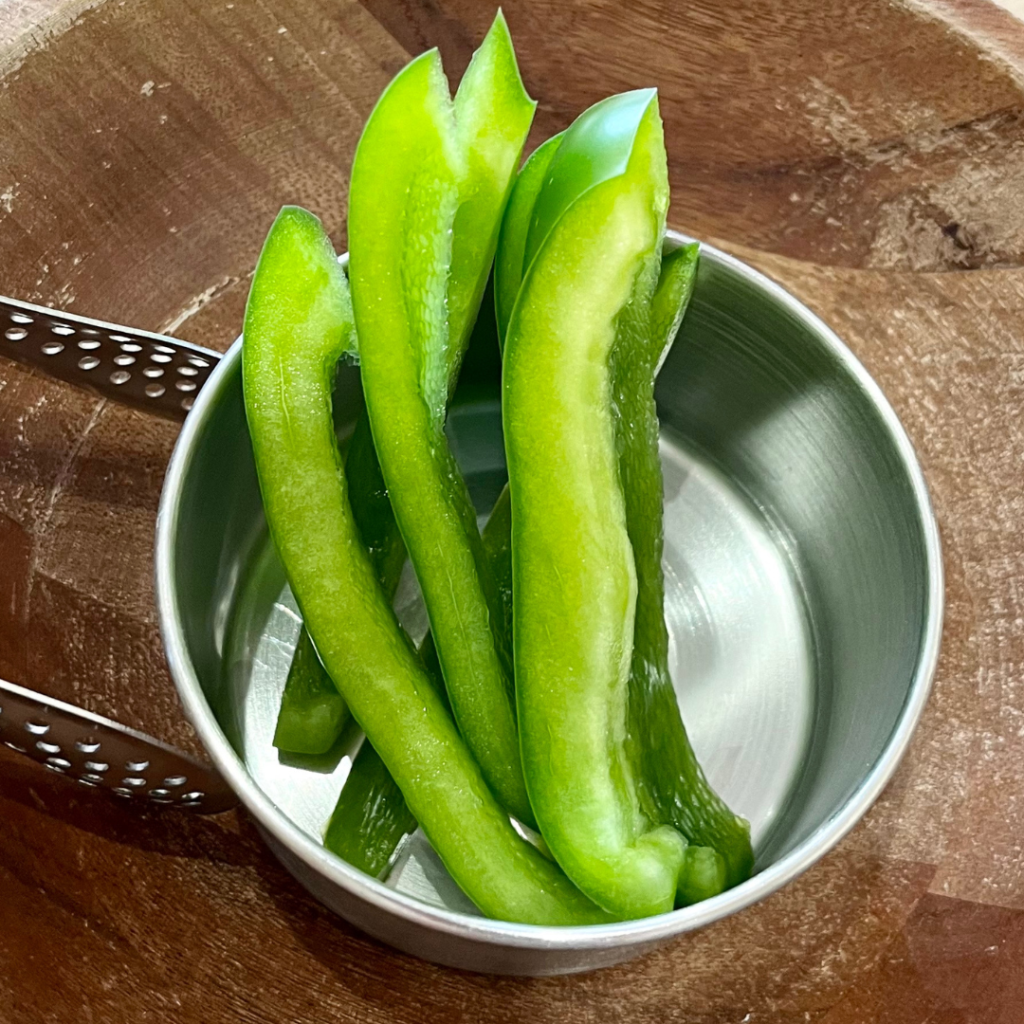**A repost from last year from our private instagram group. I noticed that I had misspelled “assumptions” on the image, and am taking this opportunity to model what I tell parents and is at the heart of Montessori: Mistakes are just an opportunity to self-correct.**
Until this week, I had never put green peppers out in the classroom. Also, I don’t like green peppers and I don’t think I ever will. (Another also, why do they taste different from the other colors, which I can’t tell apart?)
Doing my classroom shopping this week, with peppers on my list, I went first for the multicolor bag and then a little green-pepper shaped light bulb went off in my head:
Buy these instead.
I realized I had been assuming that kids wouldn’t like them because I don’t. And surprise: a lot of them did!
Our assumptions can paint us into corners and create barriers to development.
- When we don’t like a food, or think of it as a food kids in general don’t like, we may assume they don’t or won’t like it either. (And so we don’t buy it or offer it.)
- When our kids haven’t yet put on their own jackets, we may assume they need us to complete the task for them. (And so intervene at the first sign of struggle.)
- When they leave a toy out on the floor, we may assume they can’t or won’t put them away. (And so clean them up ourselves while they move on to the next thing.)
- When they hesitate while climbing at the park, we may assume they can’t get up that next step or rung. (And so pick them up or hold onto their hands.)
If we examine our assumptions instead of being immediately guided by them, and then let our kids show us what is possible, they will frequently amaze us.
What if instead, we…
- Pause before putting on the whole coat and offer the chance to try the first step in the process?
- Inviite to join in cleaning up one toy before pulling out the next?
- Watch from a bit behind at the park, ready just in case?
- Buy the green pepper?

